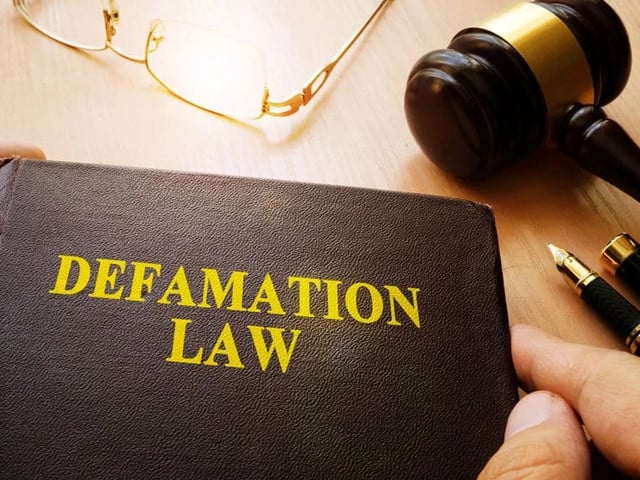In today’s digitally connected society, online defamation is a growing problem. Social media platforms, forums and websites are breeding grounds for false statements and damaging information that can harm reputations instantly. False information is spread on the internet about an individual, or a company. This can damage their reputation. It can have serious consequences, ranging from emotional distress to job loss and professional setbacks. It has never been so important to understand how the law protects individuals and businesses against online defamation.
Libel, Slander and Understanding Defamation
Libel and slander are two of the most common types of defamation. Both involve false statements being communicated that damage a person or an organisation’s good name. Libel is defamation that occurs in written forms, such as articles, blog posts or social media updates. Slander, on the other hand, refers to statements made orally, like podcasts or live streams. Most online defamation cases fall under libel, since the online world is dominated by written content. Even temporary spoken content such as a video that disappears can be defamatory if certain legal criteria are met. It is important to distinguish between slander and libel in order to determine the legal remedies available for victims.
The Key Elements in a Defamation Claim
To be considered legally defamatory, a statement must have certain elements. The statement must first and foremost be false. No matter how damaging a true statement may be, it cannot be considered defamation. Second, the false statement has to be disseminated or published, which means it must reach more than just the target. The statement must also cause damage, such as financial or reputational harm. In many cases, the publisher must be shown to have acted negligently or maliciously, especially when the victim in question is a public person. The basis for a successful defamation case is proving all of these elements.
Victims have Legal Protection and Remedies
The law provides several protections and remedies for victims of online defamation. The first step is usually to file a lawsuit against the person who posted the defamatory material. Compensation can be in the form of monetary compensation, such as for loss of income or emotional distress. The court may also order that the statement be retracted or issue an injunction preventing further dissemination. Some jurisdictions have criminal laws against defamation, but these are rare and often considered controversial.
Defenses Against Defamation Claims
There are valid defences to protect free speech, even though defamation laws aim to protect reputation. Truth is a widely accepted defence. If the statement is proven to be true, then it’s not defamatory. A common defence is privilege. This applies in specific circumstances, like statements made in judicial proceedings or during parliamentary debates. Opinions are also often used to defend defamation, since it only applies to objective statements and not subjective opinions. Depending on the circumstances, public interest or accidental publication can also be used as a defence. These defences are crucial in maintaining a balance between the rights of reputation and freedom to speak.
Internet Service Providers’ Role
Internet Service Providers play an important role in the distribution of online content. However, their liability for defamation can be complex. ISPs, in general, are considered intermediaries who are not liable for the defamatory material created by their customers. In some cases they will be forced to act, for example, by removing the harmful content, or giving information about the person responsible for the statement. ISPs are protected by laws such as the Communications Decency Act in the United States, but there is still some ambiguity regarding platform accountability.
Anonymous Online Speech and Defamation
Internet anonymity complicates attempts to combat online defamation. It is possible for individuals to post harmful content using pseudonyms. This makes it hard for victims of online defamation to determine the source. In certain situations, however, legal mechanisms like subpoenas may be used to force platforms to reveal the identities of anonymous users. The courts balance the need to protect people from defamatory material with the right to privacy. In addition, a growing number of jurisdictions have taken legislative measures to prevent anonymous online speech from becoming a cover for harmful behaviour.
Reputation Management Tips and Prevention
Defamation can be prevented and minimised by actively managing your online reputation. You can prevent problems by regularly monitoring social media platforms and blogs for harmful content. To stay ahead of defamatory threats, businesses can invest in reputation-management tools and services. Individuals can counteract the damage of false statements by building a strong personal brand that is supported by positive and truthful online content. To prevent internal defamation, it’s important to educate your employees about online conduct.
Case Studies: Notable Online Defamation Cases
Case studies can provide valuable insight into the complexity of online defamation. Consider the case of British blogger Sally Bercow, who, after tweeting a statement that implied a false accusation, was sued for defamation and suffered substantial damages. Tesla CEO Elon Musk was also involved in a widely discussed case. He faced a lawsuit for defamation after using a derogatory word on Twitter to describe a cave diver. The case, which was ultimately decided in Musk’s favour, highlights the grey areas of online interactions and legal standards. These examples highlight the importance of understanding the legal implications of online statements.
The Future of Online Defamation Law
Legal systems around the world face unique challenges due to the rapid development of digital technology. Online defamation is on the rise, which means that laws need to evolve in order to deal with issues such as AI-generated content and deepfakes. They also have influencers, content creators, and other content providers who shape public opinion. Global platforms are also posing jurisdictional issues in the enforcement of defamation law across borders. There are efforts underway to improve the cross-border cooperation of legal authorities while protecting freedom of expression. The legal landscape for online defamation is likely to remain dynamic and ever-changing as technology advances.
FAQs
1. How should I respond if I am a victim of defamation online?
Document any evidence you can, including screenshots or timestamps. To understand your options, contact an attorney who is familiar with defamation laws.
2. Is it possible to sue online for defamation when the statement is true
Truth is not an absolute defence against defamation. Defamation requires that a statement be false.
3. Is there a time limit for filing a lawsuit against someone who has defamed me?
Statutes of limitation apply to defamation claims, and they vary from jurisdiction to jurisdiction. You have between one and three years to bring a defamation claim after the publication date.
4. In a case of defamation, what is considered public interest?
Public interest statements can be used to defend against defamation suits. They may include statements that deal with important societal, health or safety issues, as well as political and health matters.
5. Can businesses file defamation lawsuits?
Businesses can bring defamation suits if false claims harm their reputation, or cause financial losses.




